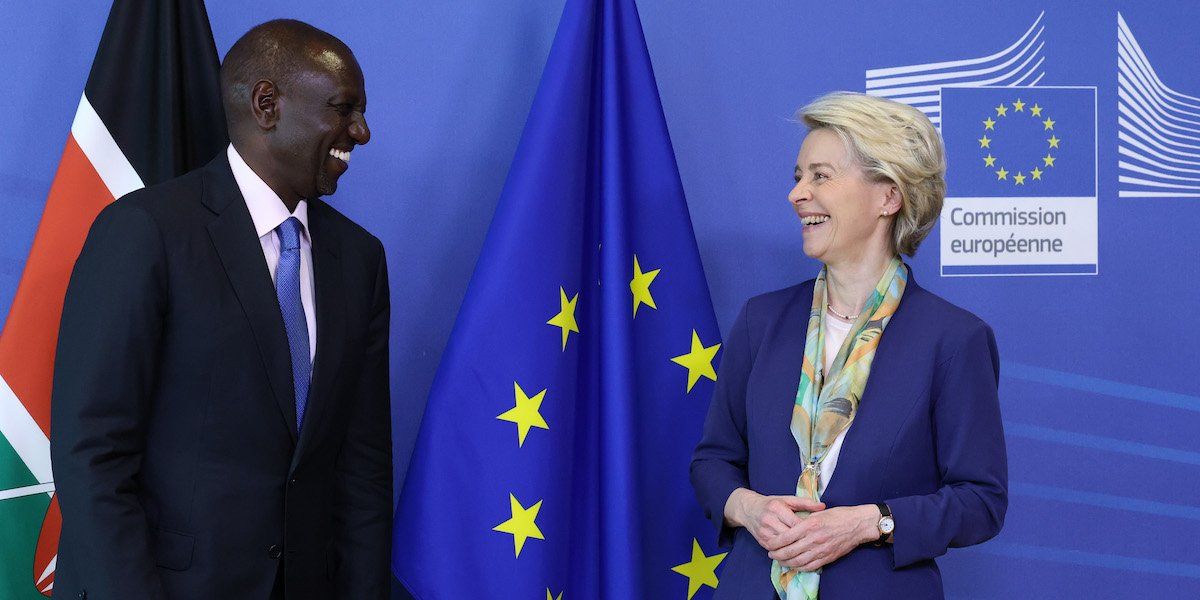The European Union and Kenya signed a historic trade deal on Monday to grant Kenyan exports duty- and quota-free access to the bloc. Kenya will also gradually reduce tariffs on European imports over 25 years.
The deal, which must still be ratified by the parliaments of both parties, has been described by the European Commission as the “most ambitious trade deal ever signed” between the EU and a developing country. Kenyan President William Ruto said it would “put real money into the pockets of ordinary people,” and EU chief Ursula von der Leyen called it a "win-win situation."
The EU is Kenya’s second-largest trading partner, accounting for 21% of the East African country’s total exports, primarily of agricultural products such as flowers, fruits, and vegetables. In 2022, total trade between the EU and Kenya reached €3.3 billion.
Jockeying for influence: The EU-Kenya trade deal comes at a time when the West has increasingly expressed concern about the growing influence of China and Russia across countries in Africa. China is already the largest trading partner of Kenya, a key economic hub of East Africa in a region in which many countries have long struggled with poverty and violence.
